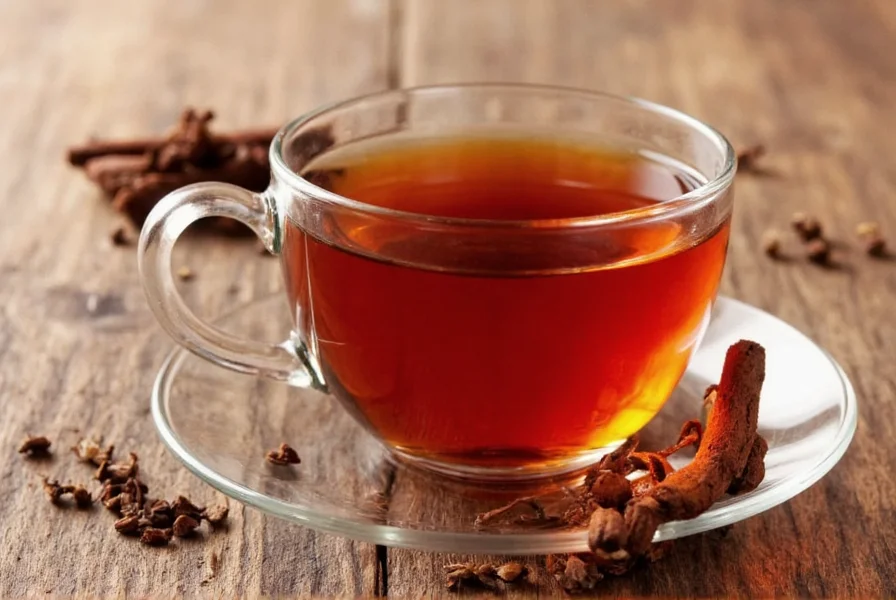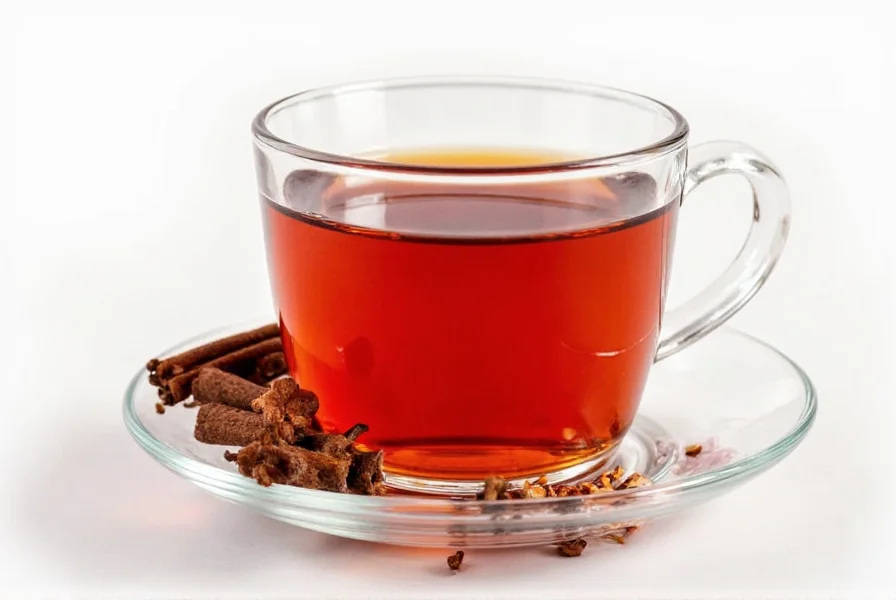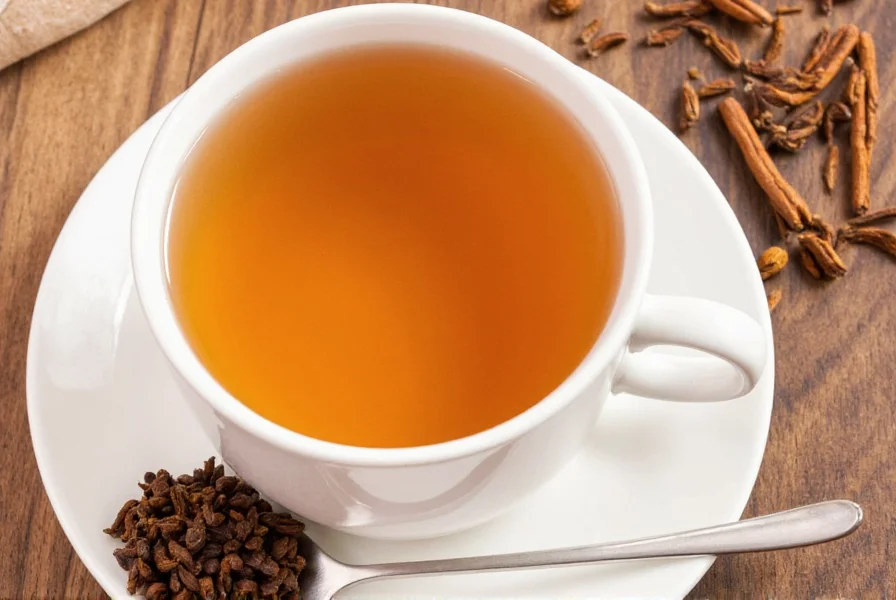Clove tea has been used for centuries across Asian and Middle Eastern cultures as a natural remedy for various ailments. Derived from the dried flower buds of the Syzygium aromaticum tree, this potent herbal infusion contains approximately 70-90% eugenol, a bioactive compound responsible for most of its therapeutic effects. Modern research continues to validate many traditional uses of clove tea, revealing its impressive pharmacological profile.
Science-Backed Health Benefits of Clove Tea
Oral Health Protection
One of clove tea's most well-documented benefits relates to oral health. The eugenol in clove tea demonstrates significant antibacterial properties against Streptococcus mutans and other bacteria responsible for dental plaque and gum disease. A 2020 study published in the Journal of Ayurveda and Integrative Medicine found that clove extract reduced oral pathogens by up to 65% compared to control groups. Many people wondering is clove tea good for toothache relief will find it provides temporary pain reduction due to eugenol's natural analgesic properties.

Digestive System Support
When considering how does clove tea help with digestion, research indicates multiple mechanisms. Clove tea stimulates enzyme production that aids in breaking down food while reducing intestinal spasms. The warm infusion relaxes gastrointestinal muscles, providing relief from bloating, gas, and nausea. A clinical trial involving 60 participants with functional dyspepsia showed that those consuming clove tea twice daily experienced 40% greater symptom improvement compared to the placebo group after four weeks.
Anti-Inflammatory and Pain Relief Properties
The anti-inflammatory effects of clove tea make it valuable for managing chronic pain conditions. Eugenol inhibits cyclooxygenase enzymes similar to how non-steroidal anti-inflammatory drugs (NSAIDs) work, but through natural pathways. Regular consumption may help reduce symptoms of arthritis and joint pain. Researchers at the National Institutes of Health noted in a 2022 review that clove's anti-inflammatory compounds show promise for long-term management of inflammatory conditions without the side effects associated with pharmaceutical interventions.
| Health Benefit | Key Compounds | Scientific Evidence Level | Recommended Daily Intake |
|---|---|---|---|
| Oral Health | Eugenol, flavonoids | Strong clinical evidence | 1-2 cups after meals |
| Digestive Aid | Eugenol, tannins | Moderate clinical evidence | 1 cup before meals |
| Anti-Inflammatory | Eugenol, kaempferol | Promising preliminary research | 2-3 cups throughout day |
| Blood Sugar Support | Anthocyanins, eugenol | Early-stage research | 1-2 cups between meals |
Immune System Enhancement
Those exploring what are the health benefits of drinking clove tea for immunity will find compelling evidence. Clove tea contains substantial antioxidants, including vitamin C and various polyphenols that combat oxidative stress. A comparative analysis in the Journal of Agricultural and Food Chemistry ranked cloves among the top 10 antioxidant-rich spices. Regular consumption may strengthen the body's defense against common infections, particularly during cold and flu season. The warming nature of the tea also provides comfort during respiratory illnesses.
Blood Sugar Regulation Potential
Emerging research suggests clove tea may help with blood glucose management. Animal studies have shown that clove extract improves insulin sensitivity and reduces blood sugar levels. While human trials are still limited, a 2023 pilot study with 30 prediabetic participants found that daily clove tea consumption for eight weeks resulted in modest but significant improvements in fasting blood glucose compared to the control group. Those researching clove tea for blood sugar control should consider it as a complementary approach alongside medical treatment.
Proper Preparation for Maximum Benefits
To maximize the health advantages of clove tea, proper preparation matters. Crush 4-5 whole cloves slightly to release their essential oils, then steep in 8 ounces of hot (not boiling) water for 8-10 minutes. Using whole cloves rather than pre-ground powder preserves more volatile compounds. For enhanced digestive benefits, add a slice of fresh ginger. Those seeking stronger anti-inflammatory effects might combine cloves with cinnamon sticks.
Safety Considerations and Potential Side Effects
While generally safe, clove tea requires some precautions. Excessive consumption (more than 3 cups daily) may cause mouth irritation or digestive discomfort due to its potent compounds. People with bleeding disorders should consult their physician before regular consumption, as eugenol has mild anticoagulant properties. Pregnant women should limit intake to 1 cup daily as high doses may stimulate uterine contractions. Individuals scheduled for surgery should discontinue use at least two weeks beforehand due to potential interactions with blood clotting.

Comparing Clove Tea to Other Herbal Remedies
When evaluating natural remedies using clove tea versus alternatives, consider these distinctions. Unlike chamomile tea which primarily promotes relaxation, clove tea offers more targeted antibacterial and anti-inflammatory effects. Compared to ginger tea which focuses on digestion and nausea, clove tea provides stronger oral health benefits. For immune support, clove tea contains higher antioxidant levels than many common herbal teas but lacks the adaptogenic properties found in tulsi (holy basil) tea.
Conclusion
Clove tea represents a powerful addition to a natural health regimen when used appropriately. Its diverse benefits—from supporting oral health to potentially aiding blood sugar management—make it valuable for various wellness goals. As with any herbal remedy, consistency matters more than intensity; regular moderate consumption yields better results than occasional heavy intake. Always consult with a healthcare provider before using clove tea therapeutically, especially if managing chronic health conditions or taking medications.
Frequently Asked Questions
How many cups of clove tea should I drink daily for health benefits?
For general health maintenance, 1-2 cups of clove tea daily provides optimal benefits without risk of side effects. Those using it for specific therapeutic purposes like digestive support may safely consume up to 3 cups daily, but should not exceed this amount. It's best to space consumption throughout the day rather than drinking multiple cups at once.
Can clove tea help with sore throat relief?
Yes, clove tea can provide temporary sore throat relief due to eugenol's natural analgesic and antibacterial properties. The warm liquid soothes irritated throat tissues while reducing bacterial load. For best results, sip warm clove tea slowly several times a day. Adding honey enhances the soothing effect, though avoid honey for children under one year old.
When is the best time to drink clove tea for digestion?
For optimal digestive benefits, drink clove tea 15-20 minutes before meals to stimulate digestive enzyme production. You can also consume it after meals to help relieve bloating and gas. Avoid drinking clove tea on an empty stomach first thing in the morning as its potency may cause mild stomach irritation in some individuals.
Does clove tea interact with any medications?
Clove tea may interact with blood-thinning medications like warfarin due to eugenol's mild anticoagulant properties. It could potentially enhance the effects of diabetes medications, requiring blood sugar monitoring. Always consult your healthcare provider before adding clove tea to your routine if you take prescription medications, especially those affecting blood clotting or blood sugar regulation.











 浙公网安备
33010002000092号
浙公网安备
33010002000092号 浙B2-20120091-4
浙B2-20120091-4